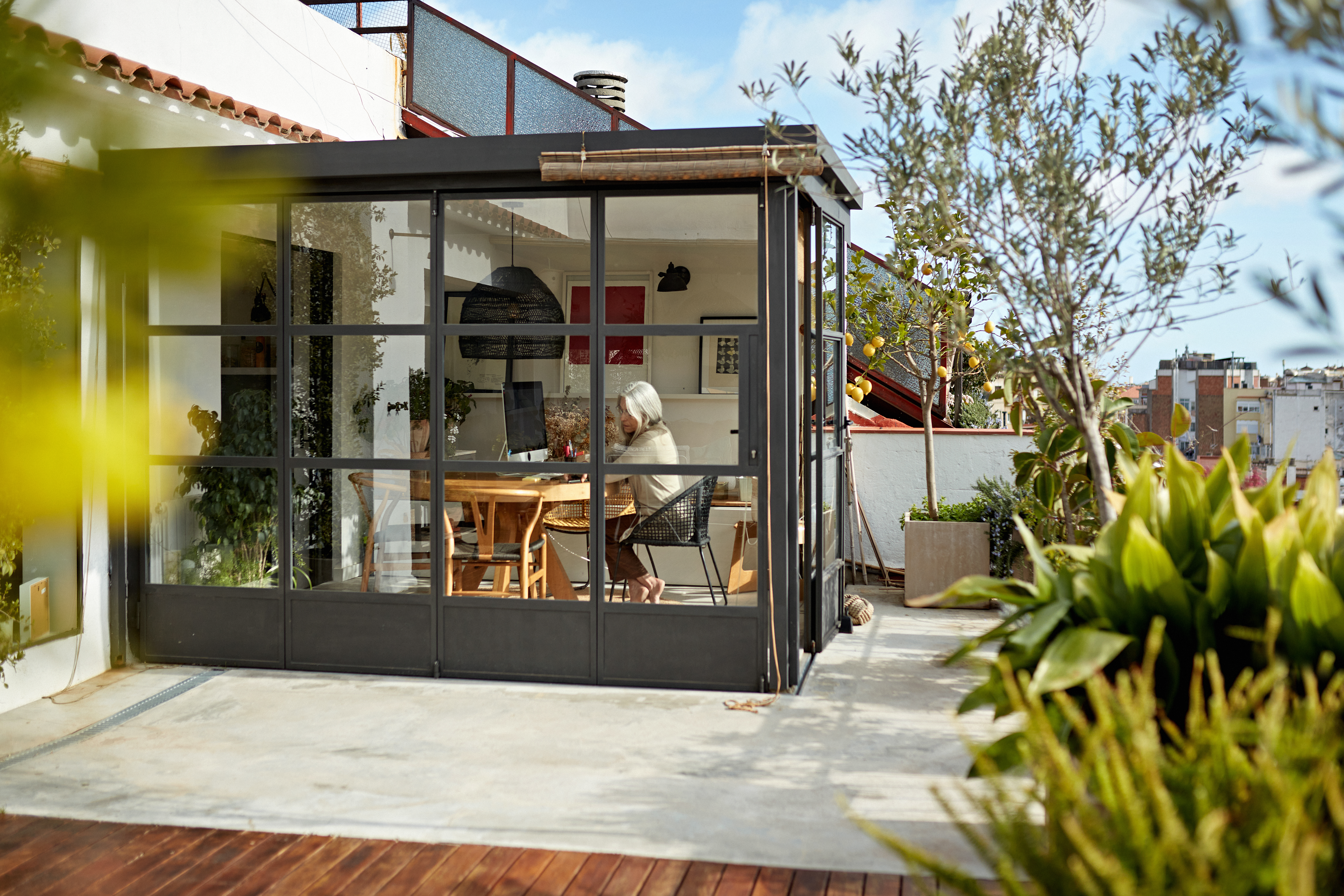12 Things Appraisers Know About Green Energy Properties

Some traits of a green energy property are clearly visible: solar panels, a wind turbine in the backyard, or reflective roof shingles meant to repel the sun’s heat. Other features, however, are just as important, but not as noticeable.
Appraisers and real estate brokers are becoming familiar with the importance of efficiency in the real estate market. They now understand that while major upgrades can lower energy costs, sometimes it is the unseen upgrades that best increase a home’s value.
Here are 12 tips to help your green property obtain the highest value from an appraiser:
1. “Green” Should Mean High-Performance
The first idea is that “green” should mean "high efficiency," not just environmentally-friendly. When appraisers evaluate a home, they are looking for upgrades that will increase its value by lowering the month-to-month utility costs. Improvement ideas that are “green” must also make sense regarding dollars and cents saved on energy bills.
2. In Many States, a “Green Property” Must Meet Requirements in Six Areas
A property could have a couple of energy-efficiency traits and still be lacking in certain areas. For a home to be truly environmentally friendly, it should meet requirements in six different areas:
- The site of the building
- Water efficiency
- Energy efficiency
- Indoor air quality
- Materials used for building
- Efficiency of operations and maintenance
A property should excel in all six of these areas in order to be truly “green.”
3. Each Upgrade Should Save on Operating Costs and Maintenance Costs
In older buildings, upgrades can positively benefit the owners in two different ways. First of all, improvements like new appliances, additional insulation, a new roof, or windows should reduce energy costs from the start. Upgrading major appliances could lead to significant savings on a property’s operational costs. Even inexpensive models are more efficient than they were decades ago, but appraisers recognize that maintenance costs must be factored into the equation. For example, higher-quality AC units are often pricier upfront, but over their lifespan, the maintenance costs will be much lower than they are for a cheaper model.
4. A Solar System Can Add to a Home’s Overall Value
Solar panels will lower monthly power costs, but how will they affect the overall value of a home? Owners may worry that photovoltaic (PV) panels will be unsightly and could actually decrease their property’s value. This is not the case, however. Lending agency Fannie Mae has homeowner loans specifically designed for funding the installation of solar panels.
The Federal Housing Administration (FHA), which backs about 20 percent of all home loans in the United States, agrees that solar power can indeed add value to a home. Though it does not provide specific numbers, FHA guidelines state that appraisers should take solar power into account during their appraisal of a home. Appraisers are advised to look at similar solar-enhanced properties in the area to see how the additions affected the home or building’s sale price.
5. There Is a Formula for Adding Energy Savings into Overall Home Value
Homeowners should evaluate how comparable homes performed in the local real estate market to help predict how certain upgrades will likely affect their own home’s value. The U.S. Department of Energy provides online tools for determining how much it costs each year to run your home's various appliances. Once a homeowner can figure out how much the upgrades will save annually on energy bills, he or she can multiply that number by a factor of 10 to 25. The actual multiple will depend on the local real estate market (ask your relator), but these rough calculations will produce a “ballpark figure.”
6. Upgrading Lighting Can Make a House More Efficient and More Saleable
Sizable upgrades are more inclined to increase home’s value, but owners often overlook changes that can make their home more saleable with only a little out-of-pocket expense. Upgrading your home’s lighting might not impress an appraiser, but it will likely enthuse real estate agents and potential buyers. An increase in natural lighting in the form of skylights and larger windows is one enhancement that could boost your home’s value. These upgrades can lower cooling and heating costs because they are better insulated, and they allow for more solar gain.
7. More Buyers Are Asking About Energy Efficiency
Not only does a home’s energy efficiency impact its value on paper, but these attributes are increasingly important to home buyers. This trend is good news for owners who have worked to improve the efficiency of their home. Energy-efficient features can offer homeowners a competitive market advantage while helping them attract buyers willing to spend more if they believe in energy-bill savings over the long-term. Property owners can turn their Energy Star appliances, new insulation or ultra-efficient lighting into a major selling point – thereby differentiating their house from similar properties in the area.
8. Visible Energy Efficient Appliance Upgrades Are Also Important
Appraisers recognize that visible upgrades do impact a home’s value. For example, many indicate that kitchen upgrades add the greatest value in the eyes of potential buyers. In addition to a fresh coat of paint and some new cabinets or counters, an Energy Star rated refrigerator, or a convection oven can go a long way in revealing a home’s value – and its energy efficiency.
9. Energy Star Rated Appliances Can Help Prove Added Value
When choosing what type of appliance to buy, homeowners should opt for Energy Star rated models. Proven to be more efficient, Energy Star appliances have met minimum government requirements, so appraisers do not need any additional evidence of their value. Yes, non-Energy Star appliances might still increase efficiency, but they will not impress appraisers (and potential homebuyers) in the same manner.
10. Windows Can Save on Energy Costs and Increase Equity
Window replacement is one project that many homeowners choose to delay. New windows will lower energy costs, but because of the project’s expense (up to $1,000 total per window), it can take a while to recoup costs from the savings on monthly energy bills. At the same time, windows are an upgrade that appraisers and potential buyers will both notice, offering owners a double benefit – an increase in the home’s value to make it more saleable, plus month-to-month energy savings. Taking both advantages into account, new windows are indeed a lucrative improvement in the end.
11. Do Not Underestimate or Overestimate High-Tech Upgrades
Technology evolves quickly, making many high-tech upgrades a poor investment. Fully wired all-home sound systems, for example, were a fad that has already become obsolete. The key is to find upgrades that use technology to provide savings on energy costs. For example, programmable thermostats are a smart investment. They minimize heating and cooling costs, and significantly limit energy consumption, by automatically adjusting the climate based on a homeowner’s needs. Programmable thermostats a selling point for potential buyers – even if the devices do not lead to a higher home value on paper, they can help future owners save on monthly energy bills.
12. For Appliances, Age Matters
An appraiser always evaluates the age of a home’s major appliances. Strategically placed windows, ample shading, and ceiling fans might make a house cool during the summer without much help from an air conditioner, but this will not change the fact that the AC unit or furnace is outdated and will negatively affect the price of the house.
These 12 insights can help a homeowner think like an appraiser and make changes that will add value while (ideally) decreasing energy costs. Home improvements that increase a home’s efficiency will often qualify for Property Assessed Clean Energy (PACE) financing. PACE programs allow property owners to make efficiency upgrades with no upfront costs and enable them to pay for projects over time on their annual property tax bill.
Can PACE financing help you increase the value of your home? Find out by calling Ygrene at (855) 901-3999 or email us: info@ygreneworks.com.




